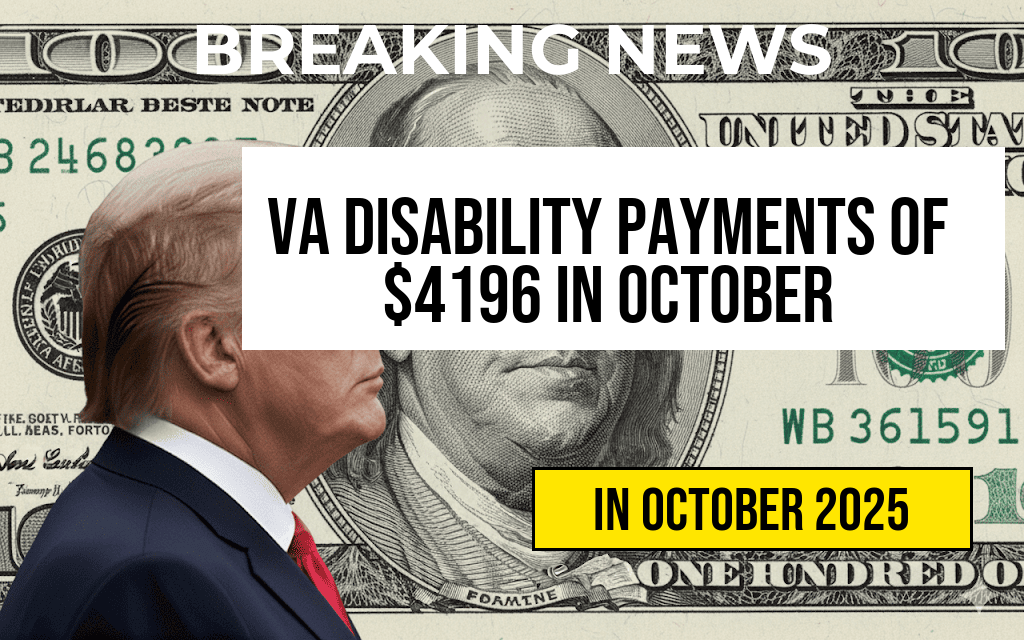The U.S. Department of Motor Vehicles (DMV) announced new driving license requirements that will take effect nationwide starting October 2025, targeting drivers aged 70 and older. These updates aim to enhance road safety by implementing more rigorous testing and health assessments for senior drivers, many of whom have decades of driving experience but may face age-related cognitive or physical challenges. The new regulations will require older drivers to undergo periodic vision tests, medical evaluations, and in some states, behind-the-wheel assessments to maintain their driving privileges. While critics argue that these measures could impose unnecessary burdens on seniors, supporters emphasize that such steps are crucial for reducing accident risks associated with aging drivers. The policy changes reflect a broader federal effort to balance mobility needs with safety concerns, ensuring that older Americans can continue driving responsibly or transition smoothly when necessary.
Key Changes in License Renewal Procedures for Seniors
Periodic Medical and Vision Screenings
- Starting October 2025, drivers aged 70 and older will be required to submit proof of recent vision tests upon renewal.
- States will also mandate medical evaluations for seniors who report health issues or have documented conditions affecting driving ability.
- Some states will implement a self-assessment questionnaire to identify potential impairments that could compromise safety.
Mandatory Behind-the-Wheel Testing
- In certain cases, seniors may need to pass a practical driving exam to demonstrate continued competency.
- The test will assess skills such as parking, lane changes, and reaction to traffic signals.
- Participation in behind-the-wheel assessments will be scheduled by the DMV based on individual health and driving history.
Enhanced Documentation and Certification
| Requirement | Description |
|---|---|
| Vision Screening | Mandatory visual acuity tests during renewal processes |
| Medical Evaluation | Submission of health documentation if health concerns are reported |
| Driving Skills Assessment | Optional or required behind-the-wheel test based on individual circumstances |
| Self-Assessment Questionnaire | Periodic self-reported health and driving capability review |
States’ Implementation and Variations
While the federal framework sets overarching standards, individual states retain authority over specific procedures. Some states, such as California and New York, already require vision testing at renewal intervals for seniors and are expected to expand assessments under the new federal guidelines. Other states may introduce stricter or more flexible criteria based on local demographics and healthcare infrastructure.
For example, Florida, known for its large senior population, has announced plans to pilot enhanced evaluation procedures, including mandatory online health questionnaires and periodic driving reviews. Conversely, states with smaller senior populations may adopt more lenient measures initially, with plans to tighten regulations over time.
Impacts on Senior Drivers and the Broader Community
Balancing Safety and Mobility
Advocates for the new requirements highlight the importance of maintaining road safety while respecting the independence of older drivers. The regulations aim to identify impairments early, prompting medical intervention or alternative transportation solutions when necessary. This proactive approach is designed to reduce traffic accidents involving senior drivers, which have historically been linked to declining vision, slowed reaction times, or medication side effects.
Challenges and Concerns
- Some seniors and advocacy groups express concern over the potential for increased administrative burdens and the risk of involuntary license restrictions.
- There is also debate about the fairness of periodic testing, especially for seniors with stable health conditions who pose minimal risk.
- Legal advocates warn that inconsistent implementation across states could lead to confusion and disparities in treatment.
Resources and Support for Senior Drivers
To assist seniors in complying with new regulations, several organizations offer resources such as refresher driving courses and medical consultations. The National Highway Traffic Safety Administration (NHTSA) provides guidelines for safe driving assessments, while local DMV offices are expected to provide detailed instructions for renewal procedures.
Looking Ahead
The policy shift reflects a growing recognition of the need to adapt transportation safety standards to demographic changes. As the senior population in the U.S. continues to grow, authorities aim to create a balanced framework that prioritizes safety without unnecessarily restricting mobility. Stakeholders are encouraged to stay informed about specific state requirements and to participate in community discussions about road safety and aging.
More information about upcoming updates and resources for senior drivers can be found on the U.S. government’s official driver safety portal.
Frequently Asked Questions
What are the new driving license requirements for seniors starting October 2025?
Beginning October 2025, seniors aged 70 and older will need to meet updated driving license requirements which include vision tests, medical evaluations, and possibly additional behind-the-wheel assessments to ensure safe driving.
Who is affected by the new driving license regulations?
The new regulations primarily affect drivers aged 70 and older across the United States, requiring them to comply with additional testing and documentation to renew or obtain their driving licenses.
What documents are required for seniors to renew their driving license under the new rules?
Seniors will need to provide valid identification, proof of medical evaluations, and possibly completion of vision tests. Specific documentation requirements may vary by state, so it’s recommended to check with local DMV offices.
Are there any exemptions or special considerations for seniors with medical conditions?
Yes, seniors with certain medical conditions or disabilities may qualify for exemptions or special assessments. They might also need to submit additional medical documentation or undergo periodic health evaluations to maintain their driving privileges.
How can seniors prepare for the upcoming licensing changes?
Seniors should schedule vision and health evaluations ahead of time, familiarize themselves with state-specific requirements, and ensure all necessary documentation is up-to-date to facilitate a smooth licensing process starting October 2025.










